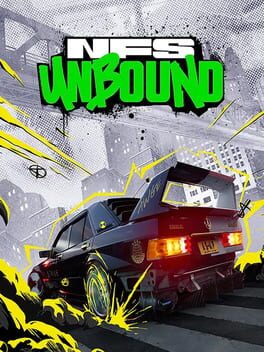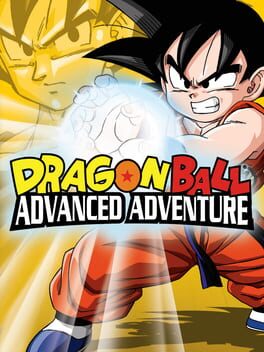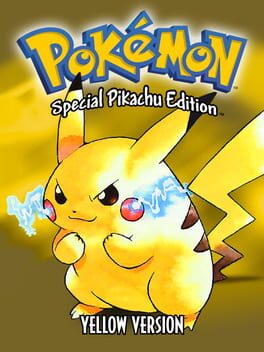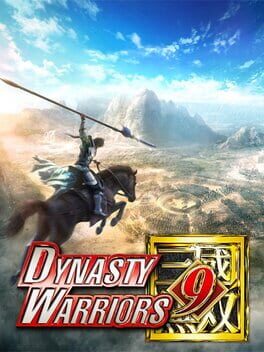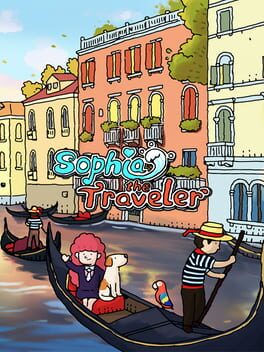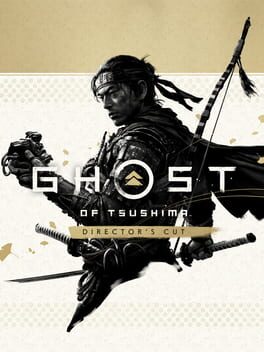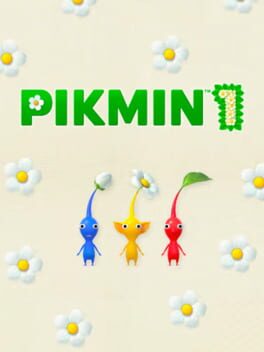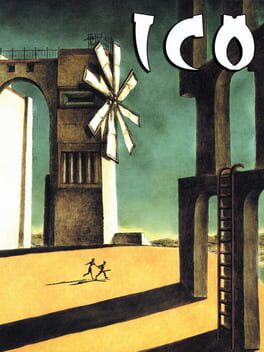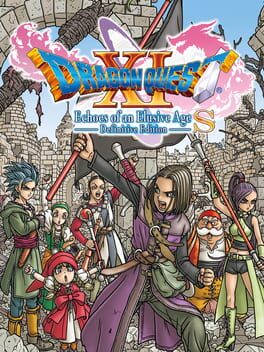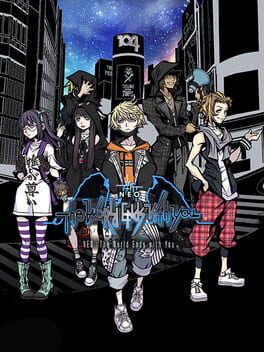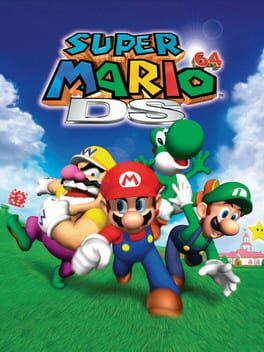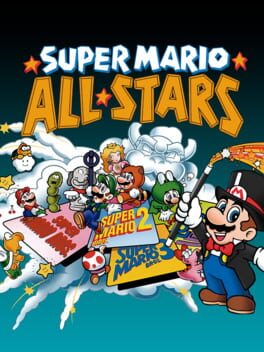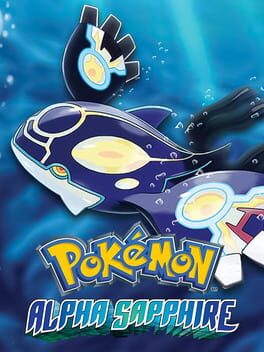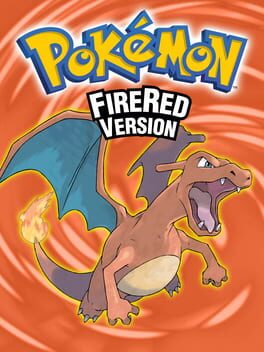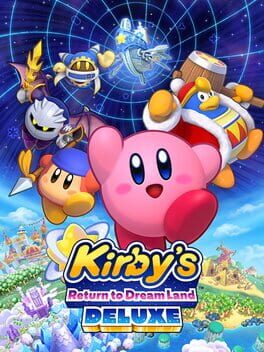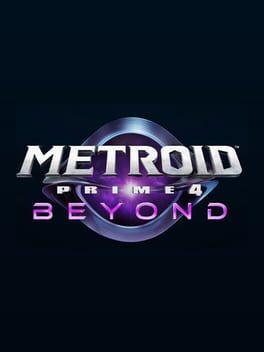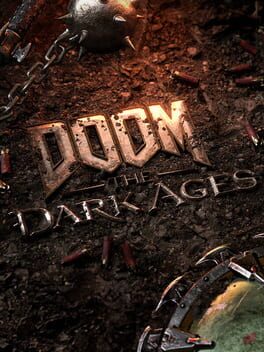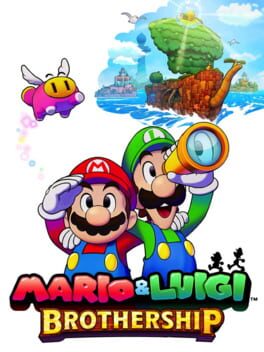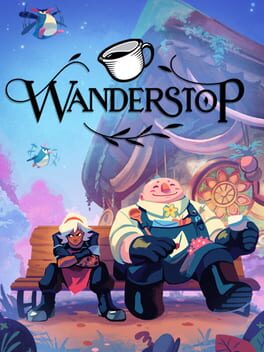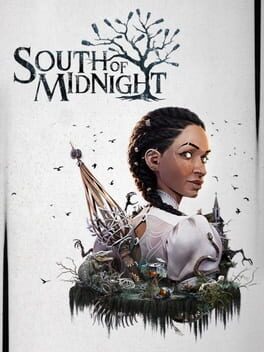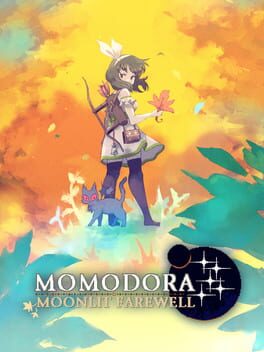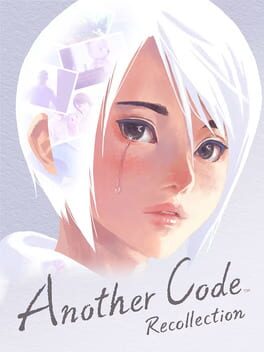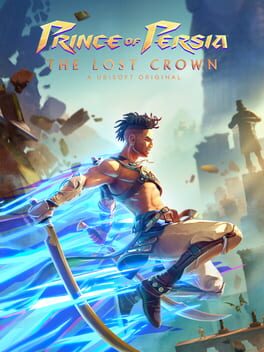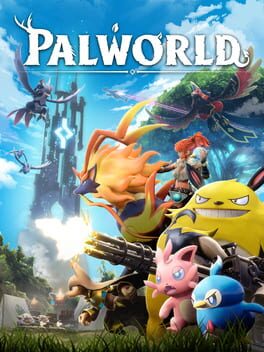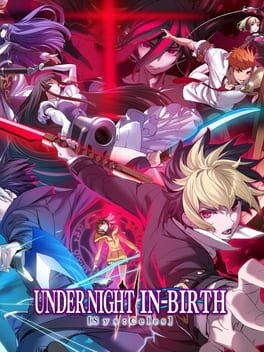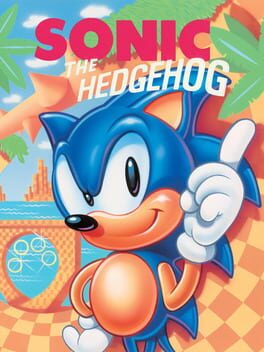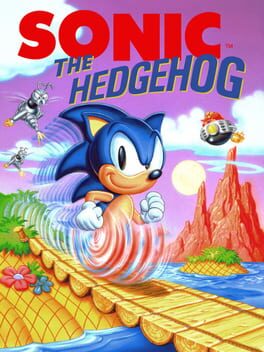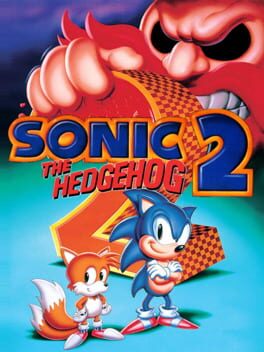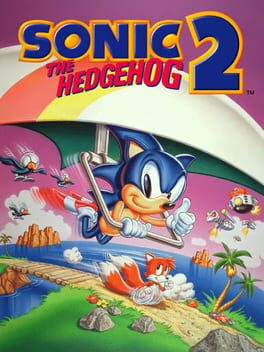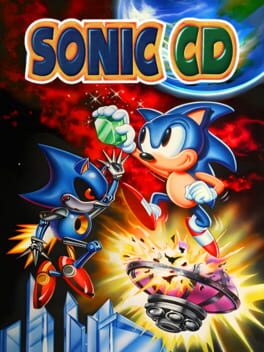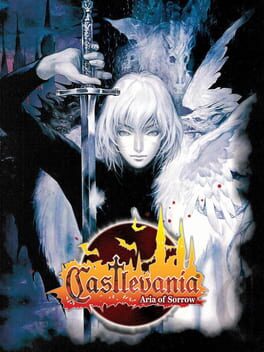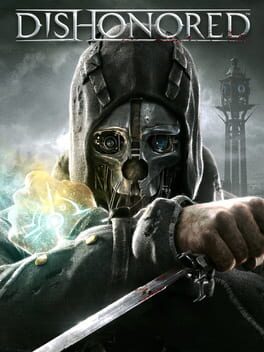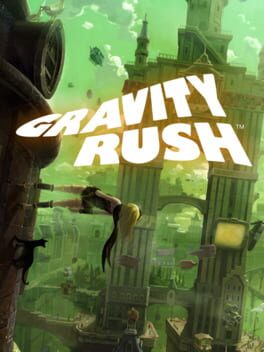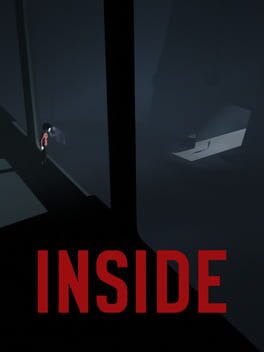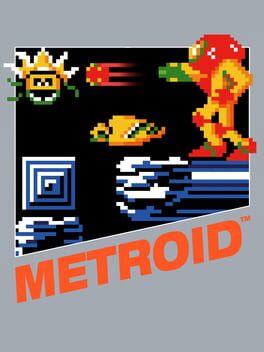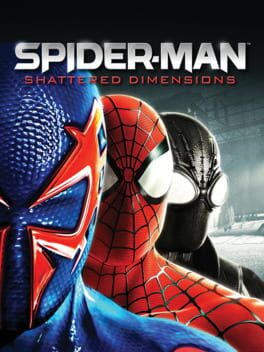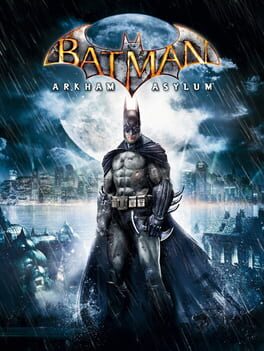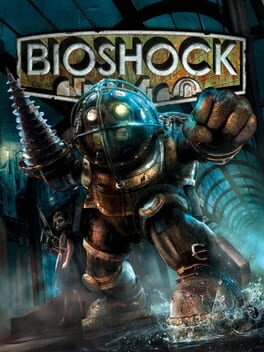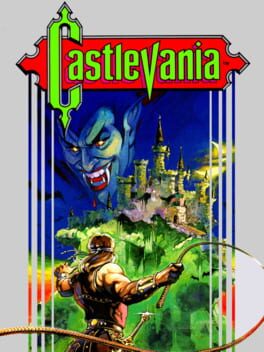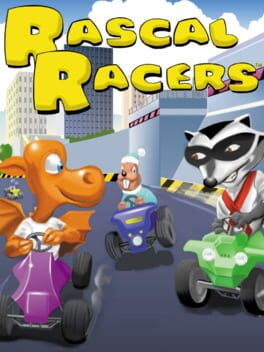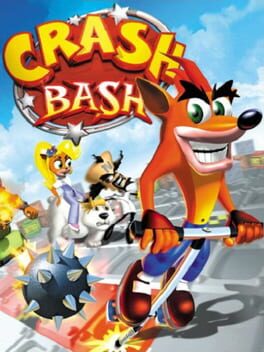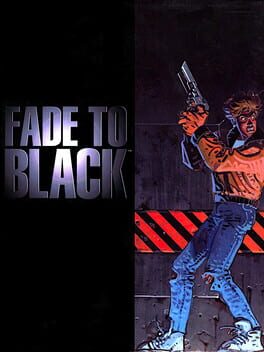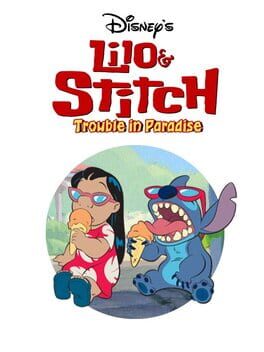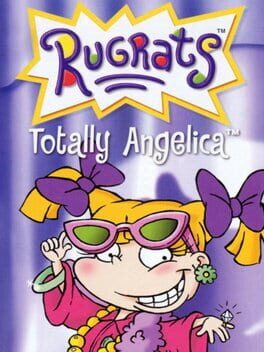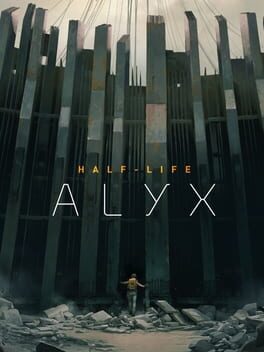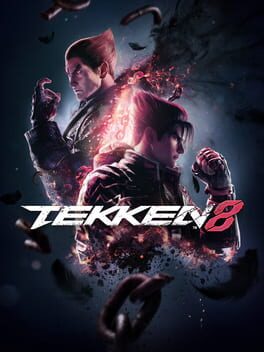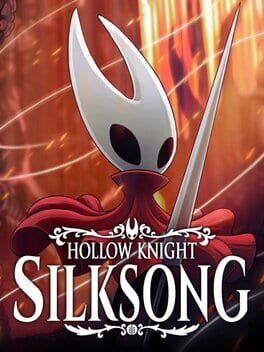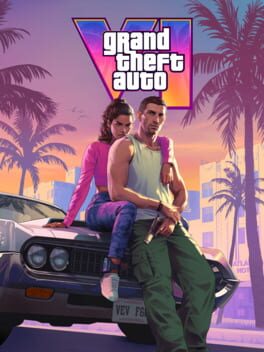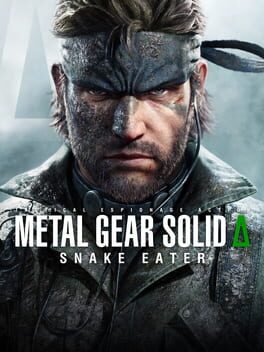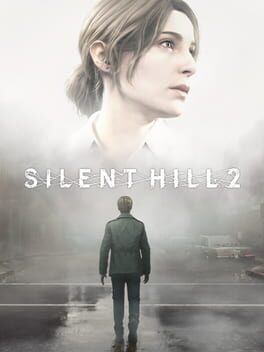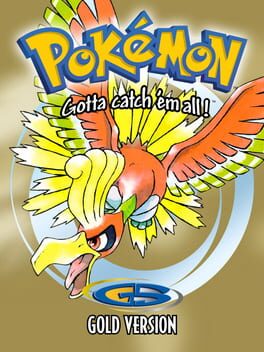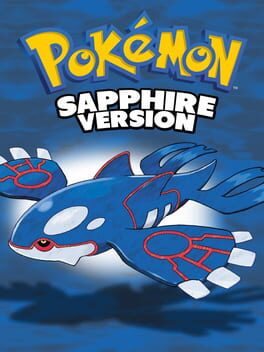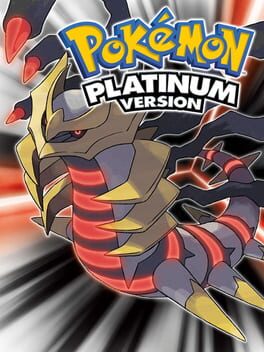235 reviews liked by Clearin
Even with the 3 different types of races, it's still pretty repetitive by the end. No fast travel is pretty baffling, I guess it's to make you interact with the heat system more often but that's nothing to write home about.
Customization seems basically endless. I didn't engage too much with it because it felt almost overwhelming but if I wanted to spend 20 hours just customizing my collection down to the millimeter I totally could have.
Writing is... Hit or miss for sure. I will say that it is funny, sometimes intentionally, very often unintentionally. Soundtrack follows the trend - some good tunes but majority is forgettable.
Customization seems basically endless. I didn't engage too much with it because it felt almost overwhelming but if I wanted to spend 20 hours just customizing my collection down to the millimeter I totally could have.
Writing is... Hit or miss for sure. I will say that it is funny, sometimes intentionally, very often unintentionally. Soundtrack follows the trend - some good tunes but majority is forgettable.
looking at this purely from the view of pokemon as a JRPG there's nothing to really write home about... it's a game for children so of course it's gonna be piss easy; at least riiight up until you hit the elite four and you've gotta lock in and figure out team comp and grind in victory road for a few hours. to be honest, when people complain about how "grindy" JRPGs are, i feel like they're mostly talking about their experiences with pokemon haha.
stating the obvious though, the creature collecting is where this game shines. some very iconic designs that you can't help but love and get attached to (gengar and snorlax are my faves). at the risk of sounding like an oldhead these early gen games have what my friend calls a "weird bugcatching freak vibe" that feels lost nowadays... once game freak stopped making these games nice and tight/minimal experiences it got harder to put yourself in the player character's shoes and allow you to explore and make discoveries seemingly on your own. i don't need fancy cutscenes and all this damn plot for god's sake...
also really funny lore drop that mew is discovered in guyana, south america before this franchise became a multi-billion dollar worldwide phenomenon and they have to retcon that and create a whole universe for these games to live in
stating the obvious though, the creature collecting is where this game shines. some very iconic designs that you can't help but love and get attached to (gengar and snorlax are my faves). at the risk of sounding like an oldhead these early gen games have what my friend calls a "weird bugcatching freak vibe" that feels lost nowadays... once game freak stopped making these games nice and tight/minimal experiences it got harder to put yourself in the player character's shoes and allow you to explore and make discoveries seemingly on your own. i don't need fancy cutscenes and all this damn plot for god's sake...
also really funny lore drop that mew is discovered in guyana, south america before this franchise became a multi-billion dollar worldwide phenomenon and they have to retcon that and create a whole universe for these games to live in
Dynasty Warriors 9
2018
Open world is way too big and empty, there's a handful of cool scenic spots but that's about it. While some of the characters are very cool, combat as a whole is extremely simple. There's basically 4 combos total which are the exact same for everyone. The special moves also tend to be meh.
Difficulty is all over the place, just doing regular story progression and and all the available side quests at any one time had me getting 2 characters to Max Level(100) when even the strongest story enemies by the end of one of their stories were in the 40s. On the other hand, sometimes you just run into a Level 80 Tiger that would put you to a sliver(I appreciate the anti-OHKO mechanic I guess) with a single swipe just hanging out in the wild.
The story... I thought was alright because I assumed split up into 3 faction campaigns, boy did I feel stupid when I got an ending in chapter 9 of 13 because I was playing a character who I'm assuming dies next and instead of moving me onto another(like you're allowed to freely do between missions or while traveling) it just tells me to start over...
Difficulty is all over the place, just doing regular story progression and and all the available side quests at any one time had me getting 2 characters to Max Level(100) when even the strongest story enemies by the end of one of their stories were in the 40s. On the other hand, sometimes you just run into a Level 80 Tiger that would put you to a sliver(I appreciate the anti-OHKO mechanic I guess) with a single swipe just hanging out in the wild.
The story... I thought was alright because I assumed split up into 3 faction campaigns, boy did I feel stupid when I got an ending in chapter 9 of 13 because I was playing a character who I'm assuming dies next and instead of moving me onto another(like you're allowed to freely do between missions or while traveling) it just tells me to start over...
Sophia the Traveler
2024
At its best in smaller locations, where you can spend some time admiring the artwork and some of the silly things going on, although the zoom function is a little finicky - you're either far away or super zoomed-in. On the flip side, the zoom functionality is a lot better in larger levels but finding what's on your list can get incredibly obnoxious. The final Venice level in particular was not a fun experience, made less fun by a lot of the clues given not being of any use, and some of the items you need to find being absolutely tiny in the grand scheme of things.
I had been waiting for years to play this game, as I do not own a playstation, and so I was thrilled when I heard it was coming out on PC. I grabbed it immediately and spent over a month exploring the game and story.
The game is beautiful. Even without using high graphics, almost every aspect of the game is picturesque. I don't think I've ever taken so many screenshots of a game before.
The gameplay is great, cleverly implemented, and ubiquitous. I love the fighting, and the stealth and various specialty moves and items are a joy. The main complaint I have of the gameplay is that it can be untrustworthy at times. 9 times out of 10, if I press the block button I will block, but then suddenly there is a string of three moves where the button does nothing, and it turns a winning battle into one where I'm needing to retreat. It's not my controller, as it happens in no other game. Perhaps it is a problem of converting it to PC, but it's still a problem. Also, while I would not have done it during relevant scenes, I wish I had the option to sped up dialogue. Hopefully they implement that at some point in the future.
The characters are well made, and I recognized many of the actor's faces that were converted into the game. The story is taken from the historical mongol invasions of the 13th century, and though there are certainly fantastical elements and artistic licensing of the accounts, they did their homework. However, some major plot points seem to be rushed, dismantling relationships far more quickly than good storytelling. Luckily this is few and far between, and I wouldn't even mention it were it not for it occurring during extremely important developments. Still, overall the story is great.
One thing I did not like was that, at the end of the day, I really did not agree with some of the choices Jin Sakai (MC) made, even if I was alright with following the narrative of pragmatism outweighing honor, and I felt I empathized more with his honorable uncle, though I was caught playing as Jin. That was not usually the case, as I quite enjoyed Jin Sakai as a character, but it was still noteworthy, as both are very relevant characters to the game.
The mongol enemies were varied and brought unique challenges, and I felt the main villain was adequate. And the side quests were almost always either relatively interesting or even wonderful.
Overall, great game, if it wasn't for the jank and a couple key instances of the main plot, this would be one of my favorite games. It's definitely still up there, regardless.
The game is beautiful. Even without using high graphics, almost every aspect of the game is picturesque. I don't think I've ever taken so many screenshots of a game before.
The gameplay is great, cleverly implemented, and ubiquitous. I love the fighting, and the stealth and various specialty moves and items are a joy. The main complaint I have of the gameplay is that it can be untrustworthy at times. 9 times out of 10, if I press the block button I will block, but then suddenly there is a string of three moves where the button does nothing, and it turns a winning battle into one where I'm needing to retreat. It's not my controller, as it happens in no other game. Perhaps it is a problem of converting it to PC, but it's still a problem. Also, while I would not have done it during relevant scenes, I wish I had the option to sped up dialogue. Hopefully they implement that at some point in the future.
The characters are well made, and I recognized many of the actor's faces that were converted into the game. The story is taken from the historical mongol invasions of the 13th century, and though there are certainly fantastical elements and artistic licensing of the accounts, they did their homework. However, some major plot points seem to be rushed, dismantling relationships far more quickly than good storytelling. Luckily this is few and far between, and I wouldn't even mention it were it not for it occurring during extremely important developments. Still, overall the story is great.
One thing I did not like was that, at the end of the day, I really did not agree with some of the choices Jin Sakai (MC) made, even if I was alright with following the narrative of pragmatism outweighing honor, and I felt I empathized more with his honorable uncle, though I was caught playing as Jin. That was not usually the case, as I quite enjoyed Jin Sakai as a character, but it was still noteworthy, as both are very relevant characters to the game.
The mongol enemies were varied and brought unique challenges, and I felt the main villain was adequate. And the side quests were almost always either relatively interesting or even wonderful.
Overall, great game, if it wasn't for the jank and a couple key instances of the main plot, this would be one of my favorite games. It's definitely still up there, regardless.
Pikmin 1
2023
WOOOOOOOOOOOOOOOOOOOOOOOOOOOOO YEAAAAAAAAAAAAAAAAAAAAAAAAAAAAAAAAAAAAAAAH I FUCKING LOVE PIKMIN, I LOVE BEING EMOTIONALLY ATTACHED TO SILLY LIL’ GUYS JUST TO BE DEVASTATED WHEN I LOSE ONE TO A FUCKING FROG, I LOVE DESTROYING AN ENTRIE ECOSYSTEM AS A SILLY CAPTAIN AND MAKING MY ADORABLE ALIEN CHILDREN CARRY HIGHLY DANGEROUS EXPLOSIVES, LET’S FUCKING GOOOOOOOOOOOOOOOOOOOOOOOOOOOOOOOOOOOOOOOOOOOOOOOOOOOOOOOOOOOOOOOOOOOOOOOOOOOO
It's been a long-ass time since a game has made me feel this irrationally happy, just a barrage of every positive emotion imaginable compressed into a collection of 3D models and funny sounds. There’s something about commanding and caring about an army of colored plant-aliens and exploring these forgotten forests and lakes that made me a happy motherfucker, it’s glee in its purest state.
It's a response I really can’t explain, ‘cause in reality, Pikmin is kinda the opposite of loud and bombastic; it’s a quiet, borderline meditative game, mixed with an overwhelming sense of stress and time constraint that present every single second that passes in PNF-404. 30 days to reclaim 30 spaceship parts, 25 if we ignore the extra ones, an objective which, on its own, rises stakes to the stars, and that thought will dictate every single action, and yet, it still finds room for joy.
Progression in Pikmin is entirely dictated by what you decided to do in those 30 days, which also means that it goes by pretty fast. Once you arrive at The Forest Navel, the second out of the three main areas (there’s also other 2, but one serves more as a tutorial and another as a final challenge after getting the 29 ship parts) you will have unlocked every single Pikmin type there is, and considering how you unlock that area pretty quickly and you need Blues to 100% percent The Forest of Hope, you’ll have them all basically throughout the entire game, and the purpose and use of each is clear: Reds are the strongest and can resist fire, Yellows can be thrown the highest and can carry Rock Bombs, and Blues are the only ones that can go through water without kicking the bucket. It’s with that knowledge and army of friends that you are left to your own devices, and it flows; the openness of these three main areas makes the daunting objective and the time limit feel much more manageable, especially when you get the radar, which can be pretty early on. You chose which parts to go to first, which routes to take, which roadblocks to take down and how to manage your squad and shortcuts.
You can go to get a propeller without a care and trying to ignore all hostile fauna and barricades, and you know what, that may work and you mar arrive at the part in one piece!... But things may not go as well when your Pikmin have to bring the stuff all the way back… I learned that the hard way…
Your messes and fuck ups feel humongous, and unless you decide to reset your current day, those mistakes are gonna be felt through the rest of the days… except, it’s actually pretty hard to mess things up beyond repair. Even if you feel as you could have done better or lost a ton of Pikmin to some random bird sprouting from the earth or a giant bouncy spider, you still probably got at least one part, opened up a pathway or two, made a source of bombs accessible, build a bridge that allows for non Blue Pikming to reach different items or that create faster routes; the little worlds of Pikmin may feel big, but they are still… well, small, even if you screw a day or two, you probably also made something that will help you greatly in the days that’ll follow. Pikmin is a game full of losing conditions: extinctions, giant enemies, blocked paths… and yet is also full of little victories, constant reminders that your strategizing, both fly and between days, pays off immensely.
Despair won’t do much here, and there are reasons to be hopeful, and Olimar himself does a pretty good job of reminding that.
The Captain is a damn good protagonist in a way I wasn’t expecting, yet in the way he needed to be. This isn’t a game about saving the planet or even he Pikmin, those are doing pretty good despite the post-apocalyptic state of things, this is a game about saving Olimar. He got his ass stranded and now gotta fix the damn mess, and that in it on itself is a pretty compelling idea, but it’s made even better by how fleshed out he really is. I really expected him to be just som random silly guy, and instead what I got is a man with a life back home, and learning about his life, the gifts of his children, the advice of his wife that helps him when he first crash-landed, or just knowing his deeper thoughts at the end of the day, his findings about the wildlife and ship-par description (or just complaining about his boss and company and him talking about a massage machine which is funny as FUCK), it all amounts to a character which I really ended up caring about. I want Olimar to see his family again, and that makes me act faster and more carefully, it makes an already fun part collecting and time managing even more meaningful, another piece of the borader Pikmin puzzle that falls into place alongside everything else.
The Pikmin blindly following Olimar, reaching new horizons and discovering the secrets that this planet holds as well as how the Pikmin themselves work, or reading the night log after a whole day of hectic strategizing; Pikmin almost seems like a tale about the fun in adventuring in the direst of situations. The Captain names everything he encounter after things from back home or his own thoughts, the Pikmin just relax and lay down when left alone and celebrate after bringing a piece back to base, the fauna can be incredibly dangerous, but that only makes it even better when you swarm enemies properly. The only thing that matches beating a Cannon Beetle deathless or stopping a Fly Snatcher from stealing your little friends is getting multiple hard to get parts in a single day; there are so many different victories across a sea of hardships that is hard not to smile, 9is hard not to feel accomplished when managing Pikmin perfectly or successfully cleaning areas and encountering its wildlife, hell, the hardest, most deadly enemies in the game and completely optional, some not even awarding any parts, and it feels warranted! Not every single action is your final objective, but everything you do builds to it, and a game that should be riddled with stress and tension (and at times it still is) becomes kind of… zen, to put it bluntly.
Not everything is fine tuned as the world itself makes it out to be; some stuff like the flowers that change your Pikmin to other types or bugs that eat bridges thing feel vastly underused, with the former being only really useful in two puzzles for two parts and the latter barely plays a part into things since most bridges that are affected by that will probably be used only once. And that’s not even getting into probably the only thing that made me feel frustrated at the game, and something that isn’t even related to anything to the world or the way you control… and that is the brains of the Pikmin. Look, I love these fellas and I love how dumb they can be, but when I say the blindly follow Olimar, I MEAN IT. These guys will disregard any change on level or body of water and will just keep on going, and once that happens, good luck finding them again or getting them out before they die! Out of the 200 or so Pikmin that died in my run, I’d say about half of those did because of reasons that completely escaped my or my enemies’ control; things like tripping, getting distracted or one Pikmin hogging the nectar form themselves I can kinda get behind, because they give them much more personality and they are, to be honest, funny as all hell moments. But losing members my squad just because the game decided they are acting dumb or even to some random weird glitch, that not only feels horrible, is probably the only thing that feels out of place in this otherwise wonderful, rewarding experience.
I didn’t expect to get all 30 parts, let alone in less than 30 days, I didn’t expect to learn to manage my little soldiers so well and for it to be so fun, I could have never see coming in a million years feeling so attached to every single member of the cast of this game, even the enemies that made my life so difficult, I didn’t expect this to make me feel so… happy. Pikmin is a small game about some small guy in his small predicament, and the small aliens that helped him and the small victories they accomplished along the way. It’s a small game, and yet it feels grander than many world-saving adventures, everything about it does, even placing a pellet in the right place.
It’s a small game, and it makes me smile.
Basically, what I’m trying to say isWOOOOOOOOOOOOOOOOOOOOOOOOOOOOOOOOOOOOOOOOOOOOOOOOOOO PIKMIN IS DA BEST BAYBEEEEEEEEEEEEEEEEEEEEEEEEEEEEEEEEEEEEEEEEEEEEEEEEEEEEEEEEE LET’S FUCKING GOOOOOOOOOOOOOOOOOOOOOOOOOOOOOOOOOOOOOOOO-
Also, take a shot for every time I wrote ‘’Pikmin’’ in this review… way actually don’t you may perish wait waitWAIT.
It's been a long-ass time since a game has made me feel this irrationally happy, just a barrage of every positive emotion imaginable compressed into a collection of 3D models and funny sounds. There’s something about commanding and caring about an army of colored plant-aliens and exploring these forgotten forests and lakes that made me a happy motherfucker, it’s glee in its purest state.
It's a response I really can’t explain, ‘cause in reality, Pikmin is kinda the opposite of loud and bombastic; it’s a quiet, borderline meditative game, mixed with an overwhelming sense of stress and time constraint that present every single second that passes in PNF-404. 30 days to reclaim 30 spaceship parts, 25 if we ignore the extra ones, an objective which, on its own, rises stakes to the stars, and that thought will dictate every single action, and yet, it still finds room for joy.
Progression in Pikmin is entirely dictated by what you decided to do in those 30 days, which also means that it goes by pretty fast. Once you arrive at The Forest Navel, the second out of the three main areas (there’s also other 2, but one serves more as a tutorial and another as a final challenge after getting the 29 ship parts) you will have unlocked every single Pikmin type there is, and considering how you unlock that area pretty quickly and you need Blues to 100% percent The Forest of Hope, you’ll have them all basically throughout the entire game, and the purpose and use of each is clear: Reds are the strongest and can resist fire, Yellows can be thrown the highest and can carry Rock Bombs, and Blues are the only ones that can go through water without kicking the bucket. It’s with that knowledge and army of friends that you are left to your own devices, and it flows; the openness of these three main areas makes the daunting objective and the time limit feel much more manageable, especially when you get the radar, which can be pretty early on. You chose which parts to go to first, which routes to take, which roadblocks to take down and how to manage your squad and shortcuts.
You can go to get a propeller without a care and trying to ignore all hostile fauna and barricades, and you know what, that may work and you mar arrive at the part in one piece!... But things may not go as well when your Pikmin have to bring the stuff all the way back… I learned that the hard way…
Your messes and fuck ups feel humongous, and unless you decide to reset your current day, those mistakes are gonna be felt through the rest of the days… except, it’s actually pretty hard to mess things up beyond repair. Even if you feel as you could have done better or lost a ton of Pikmin to some random bird sprouting from the earth or a giant bouncy spider, you still probably got at least one part, opened up a pathway or two, made a source of bombs accessible, build a bridge that allows for non Blue Pikming to reach different items or that create faster routes; the little worlds of Pikmin may feel big, but they are still… well, small, even if you screw a day or two, you probably also made something that will help you greatly in the days that’ll follow. Pikmin is a game full of losing conditions: extinctions, giant enemies, blocked paths… and yet is also full of little victories, constant reminders that your strategizing, both fly and between days, pays off immensely.
Despair won’t do much here, and there are reasons to be hopeful, and Olimar himself does a pretty good job of reminding that.
The Captain is a damn good protagonist in a way I wasn’t expecting, yet in the way he needed to be. This isn’t a game about saving the planet or even he Pikmin, those are doing pretty good despite the post-apocalyptic state of things, this is a game about saving Olimar. He got his ass stranded and now gotta fix the damn mess, and that in it on itself is a pretty compelling idea, but it’s made even better by how fleshed out he really is. I really expected him to be just som random silly guy, and instead what I got is a man with a life back home, and learning about his life, the gifts of his children, the advice of his wife that helps him when he first crash-landed, or just knowing his deeper thoughts at the end of the day, his findings about the wildlife and ship-par description (or just complaining about his boss and company and him talking about a massage machine which is funny as FUCK), it all amounts to a character which I really ended up caring about. I want Olimar to see his family again, and that makes me act faster and more carefully, it makes an already fun part collecting and time managing even more meaningful, another piece of the borader Pikmin puzzle that falls into place alongside everything else.
The Pikmin blindly following Olimar, reaching new horizons and discovering the secrets that this planet holds as well as how the Pikmin themselves work, or reading the night log after a whole day of hectic strategizing; Pikmin almost seems like a tale about the fun in adventuring in the direst of situations. The Captain names everything he encounter after things from back home or his own thoughts, the Pikmin just relax and lay down when left alone and celebrate after bringing a piece back to base, the fauna can be incredibly dangerous, but that only makes it even better when you swarm enemies properly. The only thing that matches beating a Cannon Beetle deathless or stopping a Fly Snatcher from stealing your little friends is getting multiple hard to get parts in a single day; there are so many different victories across a sea of hardships that is hard not to smile, 9is hard not to feel accomplished when managing Pikmin perfectly or successfully cleaning areas and encountering its wildlife, hell, the hardest, most deadly enemies in the game and completely optional, some not even awarding any parts, and it feels warranted! Not every single action is your final objective, but everything you do builds to it, and a game that should be riddled with stress and tension (and at times it still is) becomes kind of… zen, to put it bluntly.
Not everything is fine tuned as the world itself makes it out to be; some stuff like the flowers that change your Pikmin to other types or bugs that eat bridges thing feel vastly underused, with the former being only really useful in two puzzles for two parts and the latter barely plays a part into things since most bridges that are affected by that will probably be used only once. And that’s not even getting into probably the only thing that made me feel frustrated at the game, and something that isn’t even related to anything to the world or the way you control… and that is the brains of the Pikmin. Look, I love these fellas and I love how dumb they can be, but when I say the blindly follow Olimar, I MEAN IT. These guys will disregard any change on level or body of water and will just keep on going, and once that happens, good luck finding them again or getting them out before they die! Out of the 200 or so Pikmin that died in my run, I’d say about half of those did because of reasons that completely escaped my or my enemies’ control; things like tripping, getting distracted or one Pikmin hogging the nectar form themselves I can kinda get behind, because they give them much more personality and they are, to be honest, funny as all hell moments. But losing members my squad just because the game decided they are acting dumb or even to some random weird glitch, that not only feels horrible, is probably the only thing that feels out of place in this otherwise wonderful, rewarding experience.
I didn’t expect to get all 30 parts, let alone in less than 30 days, I didn’t expect to learn to manage my little soldiers so well and for it to be so fun, I could have never see coming in a million years feeling so attached to every single member of the cast of this game, even the enemies that made my life so difficult, I didn’t expect this to make me feel so… happy. Pikmin is a small game about some small guy in his small predicament, and the small aliens that helped him and the small victories they accomplished along the way. It’s a small game, and yet it feels grander than many world-saving adventures, everything about it does, even placing a pellet in the right place.
It’s a small game, and it makes me smile.
Basically, what I’m trying to say isWOOOOOOOOOOOOOOOOOOOOOOOOOOOOOOOOOOOOOOOOOOOOOOOOOOO PIKMIN IS DA BEST BAYBEEEEEEEEEEEEEEEEEEEEEEEEEEEEEEEEEEEEEEEEEEEEEEEEEEEEEEEEE LET’S FUCKING GOOOOOOOOOOOOOOOOOOOOOOOOOOOOOOOOOOOOOOOO-
Also, take a shot for every time I wrote ‘’Pikmin’’ in this review… way actually don’t you may perish wait waitWAIT.
Ico
2012
Ico is the type of game I dread to play, critically acclaimed, landmark classic of the medium, influenced various games and designers I love. I dread playing those because of a fear I have, a fear that's come true : I don't like ICO, in fact, I think I might hate ICO. And now I will have to carry that like a millstone around my neck, "that asshole who doesn't like ICO". Its not even really that external disapproval I dread, its the very reputation that causes me to second guess my own sincerely held opinions. I thought I liked minimalism in game design, and cut-scene light storytelling and relationships explored through mechanics but I guess I don't. There's some kinda dissonance, cognitive or otherwise reading reviews by friends and writers I respect and wondering if there's something wrong with me or if I didnt get it or played it wrong or any other similar foolishness that gets bandied around in Internet discussions. "I wish we could have played the same game" I think, reading my mutuals' reviews of ICO. Not in a dismissive asshole way of accusing them of having a warped perception, but moreso in frustration that I didnt have the experience that has clearly touched them and countless others.
But enough feeling sorry for myself/being insecure, what is my problem with ICO exactly? I don't really know. Genuinely. I wasnt even planning on writing a review originally because all it would come down to as my original unfiltered reaction would be "Playing it made me miserable". Thankfully the upside of minimalism in game design is that its easier to identify which elements didnt work for me because there are few in the game. I think the people who got the most out of ICO developed some kind of emotional connection to Yorda, and thats one aspect which absolutely didn't work for me. As nakedly "gamey" and transparently artificial as Fallout New Vegas' NPCs (and Skyrim and F3 etc) locking the camera to have a dialogue tree, they read to me as infinitely more human than the more realistic Yorda; for a few reasons. Chief among them is that despite some hiccups and bugs the game is known for, you are not asked to manage them as a gameplay mechanic beyond your companions and well, my main interaction with Yorda was holding down R1 to repeatedly yell "ONG VA!" so she'd climb down the fucking ladder. She'd climb down, get halfway through and then decide this was a bad idea and ascend again.
ICO has been to me a game of all these little frustrations piling up. Due to the nature of the puzzles and platforming, failing them was aggravating and solving them first try was merely unremarkable. It makes me question again, what is the value of minimalism genuinely? There was a point at which I had to use a chain to jump across a gap and I couldnt quite make it, I thought "well, maybe theres a way to jump farther" and started pressing buttons randomly until the circle button achieved the result of letting me use momentum to swing accross. Now, if instead a non-diegetic diagram of the face buttons had shown up on the HUD instead what would have been lost? To me, very little. Sure, excessive direction can be annoying and take me out of the game, but pressing buttons randomly did the same, personally. Nor did "figuring it out for myself" feel particularly fulfilling. Thats again what I meant, victories are unremarkable and failures are frustrating. The same can be said for the combat which, honestly I liked at first. I liked how clumsy and childish the stick flailing fighting style was, but ultimately it involved hitting the enemies over and over and over and over again until they stopped spawning. Thankfully you can run away at times and rush to the exit to make the enemies blow up but the game's habit of spawning them when you're far from Yorda or maybe when she's on a different platform meant that I had to rely on her stupid pathfinding to quickly respond (which is just not going to happen, she needs like 3 business days to execute the same thing we've done 5k times already, I guess the language barrier applies to pattern recognition as well somehow) and when it inevitably failed I would have to jump down and mash square until they fucked off.
I can see the argument that this is meant to be disempowering somehow but I don't really buy it. Your strikes knock these fuckers down well enough, they just keep getting back up. Ico isnt strong, he shouldnt be able to smite these wizard of oz monkeys with a single swing, but then why can they do no damage to ICO and get knocked down flat with a couple swings? Either they are weak as hell but keep getting remotely CPRd by the antagonist or they're strong but have really poor balance. In the end, all I could really feel from ICO was being miserable. I finished the game in 5 hours but it felt twice that. All I can think of now is that Im glad its done and I can tick it off the bucket list. I am now dreading playing shadow of the colossus even harder, and I don't think I ever want to play The Last Guardian, it just looks like ICO but even more miserable. I'm sure I've outed myself as an uncultured swine who didnt get the genius of the experience and will lose all my followers but I'm too deflated to care. If there is one positive to this experience is that I kept procrastinating on finishing the game that I got back into reading. I read The Name of the Rose and Rumble Fish, pretty good reads. Im going to read Winesburg Ohio next I think.
But enough feeling sorry for myself/being insecure, what is my problem with ICO exactly? I don't really know. Genuinely. I wasnt even planning on writing a review originally because all it would come down to as my original unfiltered reaction would be "Playing it made me miserable". Thankfully the upside of minimalism in game design is that its easier to identify which elements didnt work for me because there are few in the game. I think the people who got the most out of ICO developed some kind of emotional connection to Yorda, and thats one aspect which absolutely didn't work for me. As nakedly "gamey" and transparently artificial as Fallout New Vegas' NPCs (and Skyrim and F3 etc) locking the camera to have a dialogue tree, they read to me as infinitely more human than the more realistic Yorda; for a few reasons. Chief among them is that despite some hiccups and bugs the game is known for, you are not asked to manage them as a gameplay mechanic beyond your companions and well, my main interaction with Yorda was holding down R1 to repeatedly yell "ONG VA!" so she'd climb down the fucking ladder. She'd climb down, get halfway through and then decide this was a bad idea and ascend again.
ICO has been to me a game of all these little frustrations piling up. Due to the nature of the puzzles and platforming, failing them was aggravating and solving them first try was merely unremarkable. It makes me question again, what is the value of minimalism genuinely? There was a point at which I had to use a chain to jump across a gap and I couldnt quite make it, I thought "well, maybe theres a way to jump farther" and started pressing buttons randomly until the circle button achieved the result of letting me use momentum to swing accross. Now, if instead a non-diegetic diagram of the face buttons had shown up on the HUD instead what would have been lost? To me, very little. Sure, excessive direction can be annoying and take me out of the game, but pressing buttons randomly did the same, personally. Nor did "figuring it out for myself" feel particularly fulfilling. Thats again what I meant, victories are unremarkable and failures are frustrating. The same can be said for the combat which, honestly I liked at first. I liked how clumsy and childish the stick flailing fighting style was, but ultimately it involved hitting the enemies over and over and over and over again until they stopped spawning. Thankfully you can run away at times and rush to the exit to make the enemies blow up but the game's habit of spawning them when you're far from Yorda or maybe when she's on a different platform meant that I had to rely on her stupid pathfinding to quickly respond (which is just not going to happen, she needs like 3 business days to execute the same thing we've done 5k times already, I guess the language barrier applies to pattern recognition as well somehow) and when it inevitably failed I would have to jump down and mash square until they fucked off.
I can see the argument that this is meant to be disempowering somehow but I don't really buy it. Your strikes knock these fuckers down well enough, they just keep getting back up. Ico isnt strong, he shouldnt be able to smite these wizard of oz monkeys with a single swing, but then why can they do no damage to ICO and get knocked down flat with a couple swings? Either they are weak as hell but keep getting remotely CPRd by the antagonist or they're strong but have really poor balance. In the end, all I could really feel from ICO was being miserable. I finished the game in 5 hours but it felt twice that. All I can think of now is that Im glad its done and I can tick it off the bucket list. I am now dreading playing shadow of the colossus even harder, and I don't think I ever want to play The Last Guardian, it just looks like ICO but even more miserable. I'm sure I've outed myself as an uncultured swine who didnt get the genius of the experience and will lose all my followers but I'm too deflated to care. If there is one positive to this experience is that I kept procrastinating on finishing the game that I got back into reading. I read The Name of the Rose and Rumble Fish, pretty good reads. Im going to read Winesburg Ohio next I think.
This review contains spoilers
The only game ever in which the prerendered cutscenes look way worse than everything else. The difficulty curve is a straight line until you're 80 hours in, then it jumps up 10 feet, becoming somewhat challenging, until the last 3 or 4 encounters where it jumps up again and becomes very challenging(in a good way, mostly). Silent/self-insert protagonist at its worst, passively watches as everything goes on around him despite the story telling us he's the more important character ever it's only really true when you get a special glowing hand during cutscenes. This is massively made worse in the 3rd act post time-travel, where at times you literally have a flashback of seeing how things are about to go down and you don't say a thing? It's not like the protagonist is mute in-universe either, he's clearly shown to be able to communicate...
Some instances of truly weird(read: bad) game design, like letting you farm coins in the monster casino only to take them all away at the end of that scene or taking away a ton of levels from your party after time travel(granted they do give you those back so that's only a half-complaint).
And yet, despite all that... It's so much goddamn fun. Toriyama's artstyle and designs never disappoint. The combat is about as fun as you can have it in a traditional turn based rpg(no doubt in large part due to the huge number of QoL upgrades in the Definitive Edition). The story, basic and cliche as it is and with the major flaw regarding the protagonist I mentioned before, feels like a cozy bedtime story you'd be read before bed as a kid, perhaps because of those elements and not in spite of them.
Dragon Quest XI is a game made up of all the things I have heard a million times before, and mostly hate to hear. "It's simple, but that's what makes it good!", "It gets better 20 hours in!", "It's so much better than the sum of its parts!". This time, they're all true.
Some instances of truly weird(read: bad) game design, like letting you farm coins in the monster casino only to take them all away at the end of that scene or taking away a ton of levels from your party after time travel(granted they do give you those back so that's only a half-complaint).
And yet, despite all that... It's so much goddamn fun. Toriyama's artstyle and designs never disappoint. The combat is about as fun as you can have it in a traditional turn based rpg(no doubt in large part due to the huge number of QoL upgrades in the Definitive Edition). The story, basic and cliche as it is and with the major flaw regarding the protagonist I mentioned before, feels like a cozy bedtime story you'd be read before bed as a kid, perhaps because of those elements and not in spite of them.
Dragon Quest XI is a game made up of all the things I have heard a million times before, and mostly hate to hear. "It's simple, but that's what makes it good!", "It gets better 20 hours in!", "It's so much better than the sum of its parts!". This time, they're all true.
It's hard to come up with words to describe how good Neo World Ends With You is.
It's stylish, it's unique, it takes risks both in gameplay decisions(controlling 6 characters at once is actually crazy) and in the story(time travel powers tend to be a red flag if you like your characters to be rational) and it nails it every single time. I hadn't been so engrossed in a JRPG, or even a game in general, since Persona 5 Royal.
It's stylish, it's unique, it takes risks both in gameplay decisions(controlling 6 characters at once is actually crazy) and in the story(time travel powers tend to be a red flag if you like your characters to be rational) and it nails it every single time. I hadn't been so engrossed in a JRPG, or even a game in general, since Persona 5 Royal.
79 lists liked by Clearin
by electrode |
16 Games
by DeemonAndGames |
12 Games
by electrode |
24 Games
by LordDarias |
12 Games
by TIYFP |
345 Games
by The_Gaming_Dog12 |
50 Games
by electrode |
17 Games
